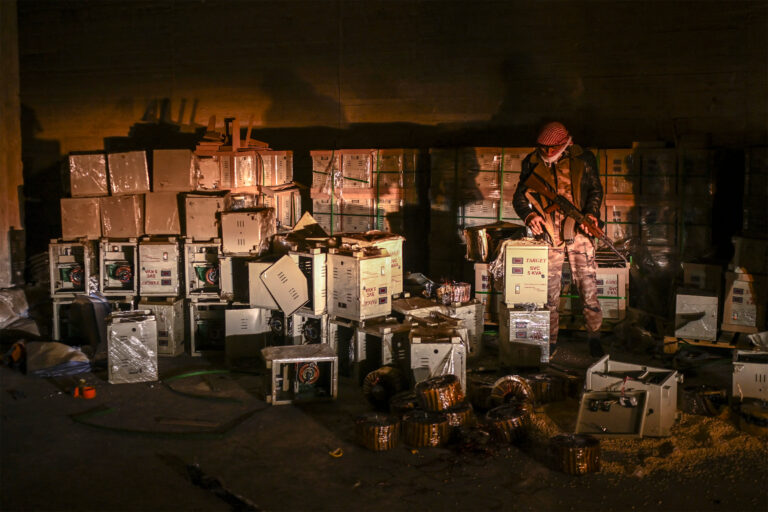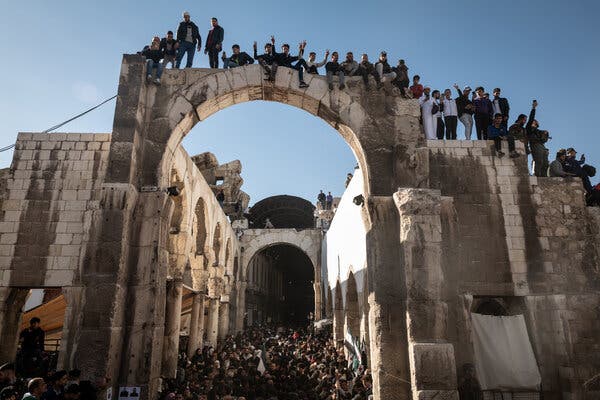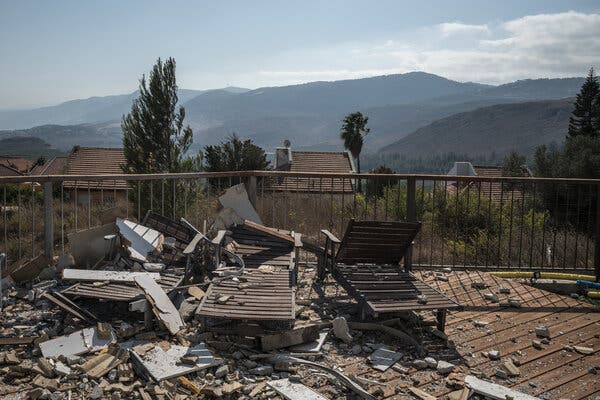News Analysis
Israel’s attack on Hezbollah’s communication devices raised expectations of a decisive shift in their war of attrition. Instead, the fighting has returned to a standoff.

After the surprise of Israel’s attacks on Hezbollah communications devices this week, the war between the two sides has returned to a familiar state: deadlock.
The attacks caused horror across Lebanon and set off international debate about the legality of Israel’s actions, but did not deliver a knockout blow to Hezbollah. The militia launched more short-range strikes on northern Israel on Friday, hours after its leader, Hassan Nasrallah, pledged to continue its campaign until Israel ends its parallel conflict in Gaza.
Israel has also pressed on with its strikes on Hezbollah targets in southern Lebanon, but avoided a decisive military move that could shift the dynamic of the 11-month war of attrition.
Israel’s leaders have said the conflict has entered a new phase, with Yoav Gallant, the defense minister, hinting of further operations and promising that Hezbollah will pay an increasing price “as time goes by.” But he stopped well short of pledging a ground invasion of southern Lebanon. The Israeli military has said it moved a paratrooper division to northern Israel but does not appear to be on the cusp of a major maneuver.
Hezbollah, for its part, has pledged a specific response to Israel’s attacks on its pagers and walkie-talkies, which killed at least 37 people and injured thousands more. But it has not set a time frame for retaliation, a possible sign that, with so many of its operatives in hospital, Hezbollah is still taking stock of its losses.
The pager attack “has not fundamentally altered the basics of the game here,” said Steven Cook, an expert on the Middle East at the Council on Foreign Relations, a New York-based research group.
The chances of all-out war have risen but both sides are still operating within the usual bounds of their long-running hostilities, Mr. Cook said.
“Undoubtedly Hezbollah is going to respond, but it’s going to be hard for them to muster forces immediately,” Mr. Cook said. And once the response does come, it likely “won’t be so major that it will force the Israelis to undertake a ground invasion,” he added.
That leaves both the conflict in Lebanon and the war in Gaza stuck in an entwined state of limbo: The Israel-Hezbollah clashes seem unlikely to ease without a truce in Gaza, and negotiations to reach that truce have ground nearly to a halt amid persistent differences between Israel and Hamas.
Both conflicts appear far from a military resolution, too. Israel seems wary of attempting a decisive military blow in Lebanon, and has failed to achieve one in Gaza, despite decimating Hamas’s forces there. The group still holds dozens of hostages in the pockets of Gaza that it still controls, preventing Israel from declaring victory.
Rawan Sheikh Ahmad and Johnatan Reiss contributed reporting.
Patrick Kingsley is The Times’s Jerusalem bureau chief, leading coverage of Israel, Gaza and the West Bank. More about Patrick Kingsley



